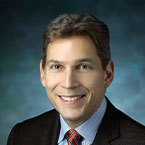By: Diana Diesen, MD & Samuel M. Alaish, MD, FAAP
Some children have medical conditions related to their thyroid. This is an H-shaped gland at the base of the neck that makes hormones (chemicals in your blood). Thyroid hormone helps control metabolism, which is how quick or slow the body works. It involves temperature, heart rate, breathing, energy, sleeping, growth, gut, and many other parts of your body.
Your doctor may decide your child's thyroid problem could be helped with surgery.
What are some common reasons for thyroid surgery?
Your child may see a thyroid surgeon for conditions such as:
a lump (mass) in your thyroid
an over-active thyroid (Grave's disease) that is not better with medicine
a big thyroid (goiter)
cancer of the thyroid
genetic conditions with a high risk of cancer (Multiple Endocrine Neoplasia or MEN Syndromes. These are rare.)
What will the thyroid surgeon need to know?
Your surgeon will ask you about your child's medical history, your family history, and perform a physical examination. Make sure to tell your surgeon if your child has:
Any lumps or masses in the neck
Previous thyroid problems or thyroid surgery
Medications including vitamins and supplements
Family history of thyroid problems
Family history of calcium problems, belly or brain tumors
If your child previously had cancer,
chemotherapy (medicine for cancer), or radiation
What kind of tests need to be done to see if my child needs thyroid surgery?
Labs
The surgeon will get some blood tests to see how your child's thyroid is working. Is it working too much or too little? These results will help your child's surgeon decide what kind of radiology pictures to order.
Radiology
Ultrasound. A thyroid ultrasound is a test that uses sound waves to look at the size and shape of the thyroid and things around the thyroid. This is the same kind of US used for pregnant women.
Radioactive iodine uptake scan (RAIU). This test shows doctors how well your child's thyroid absorbs iodine. They can see if one part of the thyroid takes up more iodine than the rest of the thyroid.
These studies can help decide what kind of surgery is needed. Sometimes other types of radiology studies are also needed, and your child's surgeon will talk to you about what those would be.
Biopsy
- Fine needle aspiration. If your child has a lump in their thyroid, the surgeon may recommend a biopsy called a fine needle aspiration. This is a procedure done in the radiology room with or without sedation (relaxing medicine). A small needle is used to pull out some thyroid cells, which are checked under a microscope by a pathologist (a doctor who specialized in looking at cells). Risks of problems from having this biopsy are small but may include mild discomfort, bleeding or a need for repeat biopsy.
What should I expect the day of surgery?
If you and your child's surgeon decide that surgery is the best treatment, your child will be scheduled for surgery to remove a part or all of your child's thyroid. Your child will be given general anesthesia, which means they will be fully asleep for the entire surgery.
An incision is made on the front of your child's neck in a crease in the skin. Part (lobectomy) or all (total thyroidectomy) of the thyroid is removed. Your child's surgeon will take care to protect the tissue around the thyroid especially the parathyroid glands (calcium glands) and nerves near the thyroid. The incision is then closed with stitches and dressed with glue or medical tape.
What should I expect after surgery?
Recovery Room
As soon as your child wakes up after surgery, someone from the recovery room will call and take you to be with your child again. It may take a while for the anesthesia to wear off. Once awake, your child can eat and drink. Nausea after surgery is common. Depending on the extent of surgery, your child may stay in the recovery room for a couple of hours or your child's surgeon may want to monitor your child overnight in the hospital.
Your child may have some pain at the incision. Sometimes surgeons inject numbing medicine under the skin to help control pain. Your child will also be given pain medicine.
Your child may have a sore throat from the breathing tube used for anesthesia during the surgery. That should be mild and go away in a day or two.
How do I care for my child at home?
Know how to care of your child's wound.
Help your child avoid picking, scratching or pulling at the incision.
No swimming until the skin has healed.
Discuss with your child's surgeon when your child can bath normally (usually within a day or two)
Understand any activity restrictions after surgery.
After anesthesia, your child may feel sleepy or dizzy for a few hours. Limit their activity on the day of surgery. Do not let them drive, bike, or operate motorized vehicles (ATVs, golf carts, boats,
scooters, etc.) The next day, your child can resume normal activities as tolerated.
No contact sports allowed right after surgery. Your child should avoid being punched or kicked in their incision so the incision will heal well.
Your child can return to work/school in about 2-7 days – it is up to your child's surgeon.
Give medicines as directed.
Pain medicine. Usually
acetaminophen not more often than every 4 hours for a day or two
Calcium medicine. If the calcium in your child's blood is low, the surgeon may want your child to take calcium to keep that level normal.
Thyroid hormone. If your child's entire thyroid is removed, your child will need to take thyroid hormone every day. This is very important for their body's energy and metabolism. Make sure they take the medicine as directed. Your child should never decide on their own to stop taking medicines.
Make any needed follow-up appointments.
Follow up with your child's surgeon as directed, usually in 1-4 weeks. Your child may need some blood work at that visit to check the amount of thyroid hormone and/or calcium in their blood.
Your child's surgeon may also refer your child to an endocrinologist (thyroid medical doctor) to follow the thyroid hormone level for a longer time.
Know how to reduce the appearance of scars.
You may use sunblock over your child's incision after the wound has healed (talk to your child's surgeon). Do not put sunblock on before the wound heals - it may hurt or turn red and get irritated. After the skin is healed, sunscreen will help prevent the wound from leaving a darker scar. Keep using sunscreen on the wound for the first year after surgery, especially when the scar is exposed to a lot of sun.
After your child's wound has healed, gently massaging the scar may help fade its appearance.
You may also consider using over-the-counter silicone gel or tape to help fade the scars. Once the wound has healed, apply twice a day for 3 months.
When should I call the surgeon's office?
Be sure to call the surgeon if your child has:
A lot of swelling or bleeding from the incision
Redness or drainage from incision. This could be a sign of an infection.
Fever greater than 101.5 (38.5 degrees Celsius). This could be another sign of an infection.
Numbness or tingling around lips or fingertips. This could be a sign of low calcium.
More Information
About Dr. Diesen Diana L. Diesen, MD, is a pediatric surgeon at Children's Health Dallas. She is an Associate Professor of Surgery at UT Southwestern, and program director of their pediatric surgery fellowship program. Diana L. Diesen, MD, is a pediatric surgeon at Children's Health Dallas. She is an Associate Professor of Surgery at UT Southwestern, and program director of their pediatric surgery fellowship program.
|
About Dr. Alaish Samuel M. Alaish, MD, FAAP, a member of the American Academy of Pediatrics Section on Surgery, is a pediatric surgeon at Johns Hopkins University. He is an Associate Professor of Surgery, and program director of their pediatric surgery fellowship. Samuel M. Alaish, MD, FAAP, a member of the American Academy of Pediatrics Section on Surgery, is a pediatric surgeon at Johns Hopkins University. He is an Associate Professor of Surgery, and program director of their pediatric surgery fellowship.
|